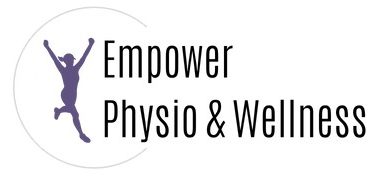We all want to be healthy for the long haul. While eating well, exercising, and productively processing stress all contribute to a well-balanced lifestyle, the most important aspect of health may surprise you. Hint: It involves doing nothing. Yep, you guessed it–it’s sleep. Want to know how to sleep better at night? I’ve got you. But first, to understand just how vital sleep is, take a look at this breakdown:
Time you can live without food: 10 days
Time you can live on an unhealthy diet: Decades
Time you can live without water: 3 days
Time you can live with stress: Decades
Time you can live without sleep: 24-48 hours
After that point, you begin to hallucinate and your body does everything it can to force sleep. While depriving yourself of any of these basic necessities would be extremely uncomfortable, a lack of sleep has a substantial impact on your ability to function. Now, most of us aren’t walking around 100% sleep deprived (though to all you new parents out there, I get it…it definitely feels like it), but the CDC estimates that approximately 33% of adults don’t get enough sleep.
Having low energy, being poorly rested, and feeling lethargic are some of the most common struggles we deal with when we don’t get a quality night of sleep. This brings me to my next point: Both quality and quantity of sleep are important, though it seems that quality may have the leading edge over quantity. So with all the demands of life, how do we maximize sleep?
How to sleep better at night
There are many factors that influence how much and how well we sleep. Looking at a comprehensive list of what to do to sleep better can get overwhelming very quickly. So let’s focus on the easiest things you can add to your routine to get the most bang for your buck. As you read through these strategies, think about which one is speaking to you most. Start with just ONE strategy to implement at first so you can develop good habits. We don’t want this to be the “crash diet” of sleep where you try everything all at once only to burn yourself out within a few days.
Be consistent with your circadian rhythm
Our bodies have a natural circadian rhythm over a 24-hour period. It’s what helps us wake up in the morning, stay awake during the day, fall asleep at night, and stay awake until morning time. There are a whole host of different hormones and neurotransmitters that make this happen, most notably cortisol, which wakes us up, and melatonin which makes us sleepy.
The suprachiasmatic nucleus (SCN) is the part of the brain that houses our internal clock and it responds very strongly to light and dark. It associates light with being awake and dark with being asleep. By optimizing how the SCN functions, we can regulate our circadian rhythm. How? One of the number one tips given by sleep scientists is to go to bed and wake up at the same time every day.
Our brain loves predictability. It wants to know what to expect so it can be prepared for whatever the body may encounter. Consistent sleep and wake times allow you to get better quality sleep, fall asleep more quickly, and spend less time awake in bed. You may be thinking, “But the weekend is my time to relax and sleep in!” I feel you on this but it really does throw off the brain and circadian rhythm. Neuroscientist Andrew Huberman says that giving yourself an hour of flexibility is okay. So if you normally wake up at 7 on the weekdays, sleeping in until 8 on the weekend, especially if you went to bed late the night before isn’t going to have a significant impact on your circadian rhythm. However, sleeping in until 11 or noon is not a good idea.
Look at bright light in the morning
Looking at bright light first thing in the morning is a super effective way to wake up. Light is detected by the SCN which halts melatonin production and signals to the body that it’s time to be awake. This regulates your circadian rhythm and tells your body to predict going to bed about 16 hours later. The sun is the best source of light, however, when that is not possible, turn on all the lights in your room.
Regulate your body temperature
Our bodies naturally cool down in the evening and this temperature drop is one of the things that signals to the body that it’s time for sleep. The brain and body need to drop their temperature by 2-3 degrees Fahrenheit to induce sleep. Conversely, the brain and body need to warm up 2-3 degrees to wake up.
You’ve likely experienced the real-life effects of this. Have you ever slept in a hot room in the summer, all the covers kicked off, stripped down to your underwear, and still can’t fall asleep because you feel so hot? Well, there’s a reason for that! Conversely, most people love sleeping in the winter, cozying up under the sheets because the room is chilly. That’s because it lowers your body temperature and promotes good-quality sleep.
The ideal ambient room temperature at night is around 65-67 degrees Fahrenheit. Aside from setting your thermostat cooler, you can also use hot and cold showers to manipulate your body temperature. In the morning, you want to increase your body temperature to promote wakefulness. There are two great ways to do this. First, turn your morning shower to cold for 1-3 minutes. I know this seems counterintuitive, but when your body detects cold on the surface of the skin, it drives more blood to the core of your body, effectively raising your body temperature. The cold water also releases adrenaline which will definitely wake you up.
At night, opt for a warm bath or shower. Again, this may seem counterintuitive since you want to lower your body temperature for sleep. But what the warm water does is dilate your blood vessels, so more blood comes to the surface of the skin. This dissipates heat and actually lowers your core body temperature. Plus warm water is soothing and relaxing, so this is a great part of an evening routine.
Be active
We all know that sleep helps us recover from the demands of the day. But what if there aren’t many physical demands of us each day? Your body has nothing to recover from! This hinders sleep. So be active during the day. Get your steps in and opt for exercise in the morning. This helps regulate your circadian rhythm and increases your core body temperature. Try to avoid vigorous exercise later in the evening as this raises your body temperature and increases cortisol levels, both of which inhibit sleep.
Have a bedtime routine
We do this with kids. In those first months of life, you establish a good bedtime routine for your kiddos so that they come to associate that routine with sleeping. The same is true for adults however not many of us practice a bedtime routine.
Choose some activities that wind you down and relax you. This could be reading, watching a show, taking a warm bath or shower, journaling, doing bedtime yoga, or whatever feels good to you. Choose 1-3 things and do them consistently each night to signal to your body it is time to fall asleep. Speaking of signals, we all set alarms to wake up in the morning, but what about setting a bedtime alarm? Set one alarm for 30 minutes before bed. This will prompt you to start your bedtime routine. Set another one as a signal that it’s time to get in bed with the lights out.
Be mindful of caffeine
Caffeine itself isn’t bad, just be aware of when you’re consuming it. Wait to drink your coffee 90-120 minutes after you wake up. This allows your body to naturally wake up on its own by responding to the cues listed above and regulating the circadian rhythm.
Stop caffeine intake between noon and 2 PM. Everyone metabolizes caffeine at different rates, so some people may need to stop earlier while others can drink coffee a bit later in the afternoon.
I hope you’ve learned how to sleep better at night and why it’s super important to prioritize quality sleep. If you want to come up with a customized plan to meet your holistic fitness and movement goals, let’s chat.
References
https://hubermanlab.com/sleep-toolkit-tools-for-optimizing-sleep-and-sleep-wake-timing/
https://themattwalkerpodcast.buzzsprout.com/1821163/10897112-25-optimising-your-sleep



